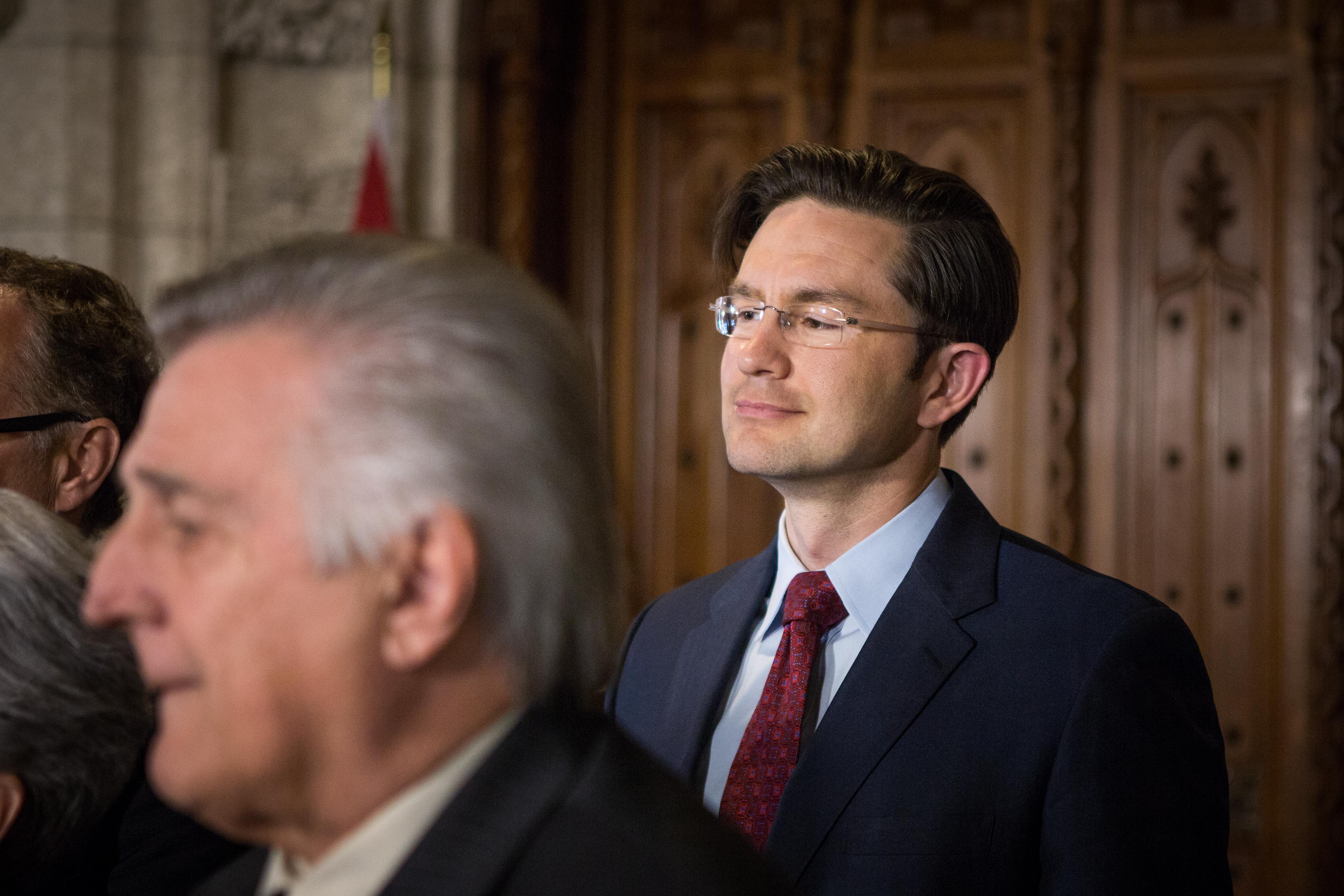
What a difference three months can make. When Pierre Poilievre walked into a London shawarma shop on March 29 and paid for his meal with Bitcoin, it was just the latest in a string of populist political stunts to drum up support for his leadership campaign. But now, as global cryptocurrency markets continue to melt down, it’s starting to look much more like an albatross than an asset.
That meltdown has already cost crypto investors more than $2 trillion, and it’s claimed a growing roster of casualties ranging from multibillion-dollar hedge funds to the portfolios of thousands of smaller retail investors. But when Poilievre shot his video, he was pitching cryptocurrencies like Bitcoin as a way to “opt out” of the inflation he claimed the Bank of Canada had created.
If his supporters bought that pitch, and many surely did, they unwittingly opted into something else entirely: hyperinflation. Because of the collapse in cryptocurrency value over the last few months, that same shawarma would cost more than twice as much in Bitcoin as it did in late March (the loonie, by comparison, is down less than four per cent versus the U.S. dollar). That’s an effective annualized rate of inflation of over 400 per cent — the stuff of Weimar Germany or Zimbabwe.
Far from being a store of wealth, Bitcoin and other cryptocurrencies have been an incinerator of it ever since Poilievre decided to embrace them.
The problem with tilting at windmills is sometimes, the windmills tilt back. But while there’s plenty of schadenfreude to go around here, there’s also a lot of real financial pain among those who drank too much of the cryptocurrency Kool-Aid. And while you might think that pain would cause those who followed Poilievre’s advice to reconsider the merits of his candidacy, that doesn’t seem to be how it works.
That’s because of something known as the “backfire effect,” which causes people presented with information that invalidates their views to double-down on them instead of changing their minds. This mindset is particularly rampant among cryptocurrency investors, who have coined an acronym for this phenomenon: HODL (hold on for dear life).
The enduring strength of Donald Trump’s political brand in America speaks to just how strong this effect can be. For more than six years now, Americans have seen just how willing he is to lie, cheat or bully his way to the top. And yet, far from undermining his standing among his supporters, that growing mountain of evidence has made them even more loyal and fanatical in their support. Even Trump’s role in an attempted coup after the 2020 election, one that’s being detailed by the Jan. 6 committee, hasn’t broken the fever that still affects millions of Americans.
It’s unlikely Poilievre’s poorly timed embrace of cryptocurrency will do much to damage his political fortunes, either. He certainly isn’t about to change his mind here, in large part because he seems biologically incapable of changing his mind about anything. But it’s also because his attack on the Bank of Canada and his embrace of Bitcoin were always more about undermining institutions than helping people make money or mitigate the impact of inflation on their finances.
Cryptocurrencies evolved into a popular vehicle for financial speculation, but their origins lie in more libertarian circles. They serve as a powerful magnet for those with anti-government or anti-establishment views, and who believe central banks and “fiat” currencies are simply ways to separate people from their hard-earned wealth. “Bitcoin ideology bought into the entire Federal Reserve conspiracy package,” British author David Gerard wrote in his 2017 book Attack of the 50 Foot Blockchain. “The Fed is a plot to use inflation to steal value from the people and hand it to a shadowy cabal of elites who also control the government.”
Poilievre is no stranger to propagating conspiracy theories, given his enthusiastic (and ill-informed) attacks on the World Economic Forum. These sorts of attacks are only going to continue in the weeks and months ahead. Whether it’s the Bank of Canada, the CBC or Elections Canada, Poilievre seems determined to erode whatever faith his supporters have in the institutions that bind our country together. Given his well-advertised disdain for elites and his inclination towards American-style politics, it’s not hard to imagine he will take a run at the Supreme Court of Canada at some point soon.
Opinion: Pierre Poilievre’s embrace of #cryptocurrency looks foolish as its value tanks. But that likely won’t cost him support in the #CPC leadership race, writes @maxfawcett. #cdnpoli
That’s what’s really at stake here: not the leadership of a political party, but the fate of our most important institutions.
If a political arsonist like Poilievre wins the CPC leadership race, he’ll have two years under the Liberal-NDP agreement to pound away at them. And even if he loses the next election, the damage he’ll do in the runup to it will linger. As Jason Stanley wrote in How Fascism Works, “What happens when conspiracy theories become the coin of politics, and mainstream media and educational institutions are discredited is that citizens no longer have a common reality that can serve as a background for democratic deliberation.”
This is the long game Poilievre is playing with Bitcoin and the Bank of Canada right now.
And while it may have cost his supporters some money, history suggests it won’t do much to weaken their support of him and his politics. That’s why it falls to the rest of us to speak out and stand up to this campaign against our institutions, even the ones we may not like very much.
If we don’t, the cost will be counted in a currency that’s far more important than dollars and cents.
This news is republished from another source. You can check the original article here

Be the first to comment